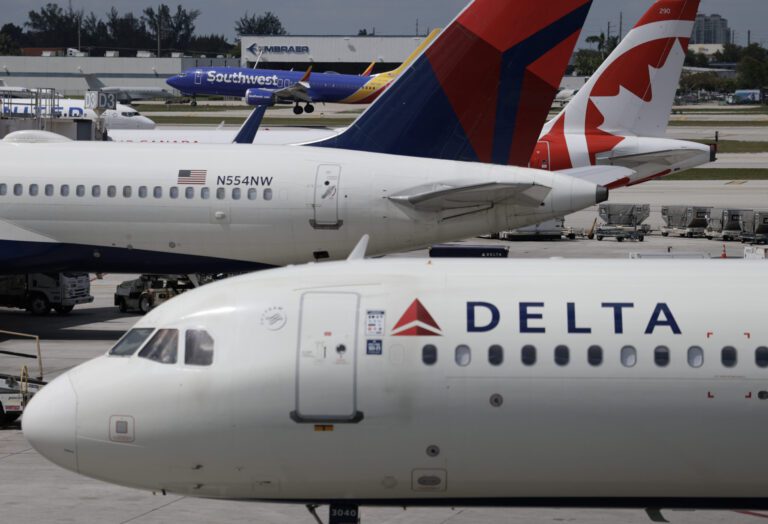Democratic Senators Express Concerns Over Delta Air Lines’ Use of AI for Ticket Pricing
A coalition of Democratic senators, including Ruben Gallego, Mark Warner, and Richard Blumenthal, has raised alarm over Delta Air Lines’ increasing reliance on artificial intelligence to optimize airline ticket pricing. They argue this technology may exploit consumer behavior to maximize profits, leading to potentially discriminatory pricing practices.
AI and Customer "Pain Points"
In a recent letter addressed to Delta’s CEO, Ed Bastian, the senators expressed their concerns regarding Delta’s use of what they term “surveillance-based fares.” They argue that such practices come with significant data privacy implications and could enable price increases tailored to each customer’s individual “pain point.”
“Delta’s current and planned individualized pricing practices not only present data privacy concerns but will also likely mean fare price increases up to each individual consumer’s personal ‘pain point’,” the senators stated in their letter.
Partnership with Fetcherr
According to reports, Delta aims to implement AI-driven revenue management technology across 20% of its domestic network by the end of the year. This initiative is in collaboration with Fetcherr, a firm specializing in AI price optimization for major airlines.
Glen Hauenstein, Delta’s president, highlighted the project’s promise on Fetcherr’s website, stating:
“The initial results show amazingly favorable units revenue versus the beta, so we are all in on this.”
Concerns Over Dynamic Pricing
Lina Khan, chairwoman of the Federal Trade Commission (FTC) under President Biden, has also voiced her apprehensions regarding AI-driven dynamic pricing. During a tech conference last year, she warned about the potential for customers to be charged higher fares based on personal circumstances.
“Imagine being charged more for an airplane ticket because the company knows that you just had a death in the family and need to fly across the country,” Khan cautioned.
Delta’s Stance
In response to the senators’ concerns, Delta maintains there’s nothing inherently harmful about its implementation of AI technology, insisting it does not create individualized pricing based on personal data.
“There is no fare product Delta has ever used, is testing, or plans to use that targets customers with individualized offers based on personal information or otherwise,” Delta said in a statement to the New York Sun.
The airline asserts that its pricing models are influenced by various market factors, including:
- Time and date of flights
- Routes
- Customer demand
- Jet fuel prices
Assurances Against Discrimination
Delta emphasizes that every customer sees the same fares and offers at the same time. The technology is aimed at improving demand forecasting, learning from past pricing decisions, and adapting to market changes in real time.
However, the senators are not satisfied with Delta’s assurances. They have requested detailed information by August 4, seeking clarity on:
- The data inputs used to train Delta’s revenue management algorithms
- The sources of data for setting fares
- The number of passengers purchasing tickets through the customized pricing model daily
Conclusion
As Delta Air Lines progresses with its AI-driven initiatives, the implications for consumer privacy and fairness in pricing remain contentious. The forthcoming responses from Delta could shed light on the safeguards in place to ensure that its dynamic pricing practices do not discriminate against vulnerable consumers.
To stay informed about this developing story, refer to additional resources on dynamic pricing and customer data privacy to understand the broader ramifications of such technologies in the airline industry.


